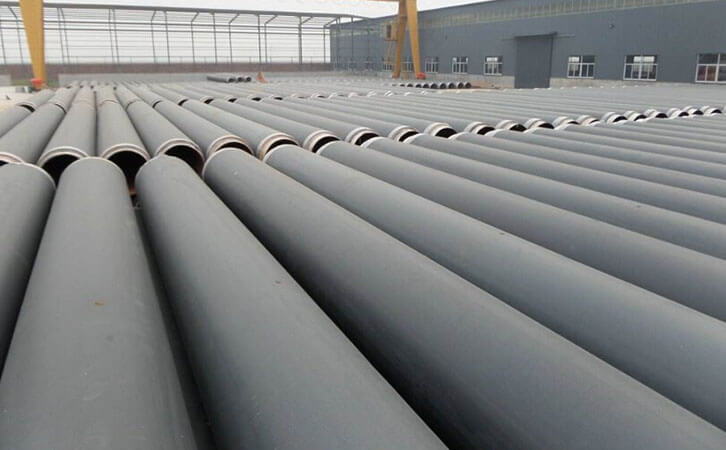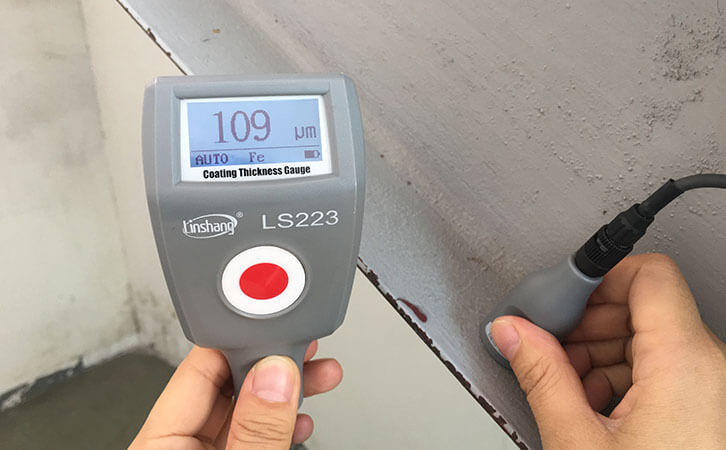How to Measure the Thickness of Anticorrosive Coating?
The anticorrosive coating contains a solid lubricant of a high molecular phenolic resin organic binder. It has excellent corrosion resistance, chemical resistance, abrasion resistance and adhesion. It can process products of various shapes. It can greatly enhance the corrosion resistance of treated metal materials. It is not easy to be affected by acids, alkalis, salts, chemical solvents and seawater are ineffective, which can protect the substrate for a long time and prolong its service life.
1. Advantages of coating anticorrosion
(1) The insulation strength can reach 500-1200 volts per micro inch (mil), which can achieve the effect of suppressing electrochemical corrosion.
(2) Simple construction, reliable quality, safe and pollution-free. It can be used on metal workpieces with high requirements for corrosion protection or severe rust.
(3) The coating has high adhesion, which can ensure that the anti-corrosion coating does not fall off or peel off even under impact or collision.
(4) The anticorrosive coating has good UV resistance and weather resistance. It can prevent hot soil layer and most of the chemicals caused by fastener corrosion.
(5) Good lubricity, friction coefficient as low as 0.05 to 0.08, hardness can be greater than 5H.
(6) The coating can work in the temperature range of -70 to 300 ℃. The coating is not easy to produce defects such as peeling, wrinkling, discoloration under high temperature and still maintain good mechanical properties at low temperatures.
2. Anticorrosive coating use
(1) Anti-corrosion of fastening seals: bolts, washers, screws, etc.
(2) Anti-corrosion equipment lining, anti-corrosion centrifugal pump, anti-corrosion film on various workpieces, etc.
(3) Anti-corrosion equipment for valve body, cylinder, ball assembly and offshore platform.
3. Anti-corrosion coating thickness measurement
An anticorrosive coating is a covering layer. Generally, this covering layer is applied to a metal surface to isolate the anticorrosive material from the surrounding medium. The anticorrosive layer generally has good electrical insulation and water resistance. It also has relatively strong adhesion on the pipeline surface. In order to check whether the anti-corrosion coating is qualified, we generally use a paint coating thickness meter.

Because the anticorrosive layer has the characteristics of anticorrosiveness, usually the anticorrosive coating is relatively thick. The measurement range requirement of the paint coating thickness meter is relatively high. Usually we use the LS223 paint coating thickness meter to check the thickness of the anti-corrosion layer.
4. Linshang LS223 paint coating thickness meter has the following characteristics
(1) The paint coating thickness meter conforms to the national standards "DIN EN ISO 2808 Coating and Varnish Film Thickness" and "JJG-818-2005 Magnetic and Eddy Current Covering Thickness Gauge Verification Regulations".
(2) The instrument can automatically identify the measurement substrate and the range is large: Fe: 0.0-5000 μm, NFe: 0.0-3000 μm. (Fe material can be measured up to 5mm thick)
(3) Simple design and easy operation.
(4) Using digital probes, with temperature compensation function. The measurement data is not affected by temperature changes and the measurement data is more stable.
To sum up, the anticorrosive coating has superior abrasion resistance, corrosion resistance, adhesion and stability, good flexibility. It can effectively isolate the erosion of acids, alkalis, salts and seawater. This kind of coating is a more promising high-performance coating and the thickness measurement of anticorrosive coatings is also the most indispensable step.
- High precision coating thickness gauge for used car
- Automotive paint protection films coating thickness gauge
- Plating Thickness Measuring Instrument for Detecting Anti-corrosion Coating
- Linshang LS220, LS191, LS160A– Necessary for Car Cover Inspection
- Coating Thickness Gauge for Second Hand Vehicle
- Zero Adjustment Step of Coating Thickness Gauge
